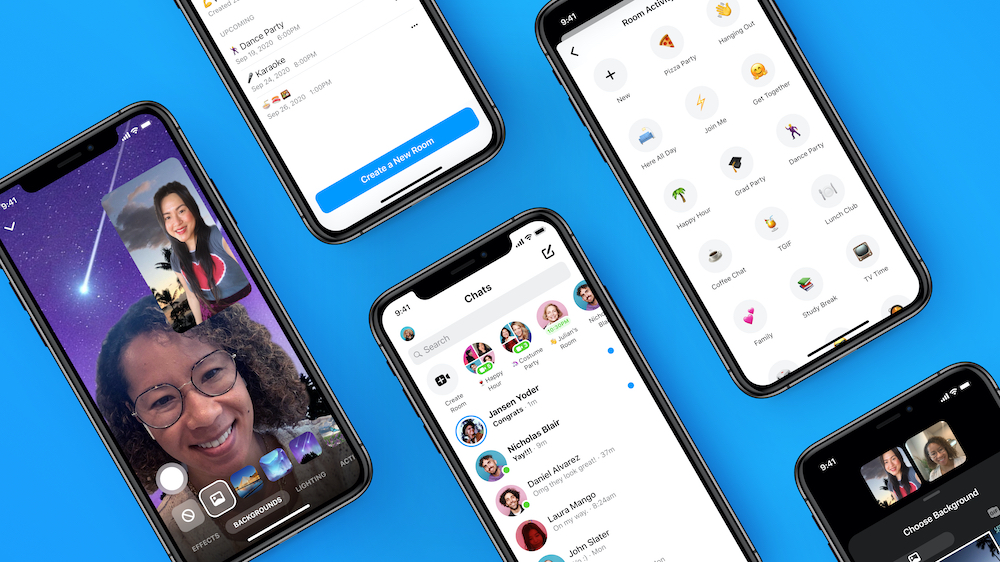Stan Chudnovsky
Like everywhere else, the COVID-19 pandemic created a new “no normal” at Facebook.
The seismic shifts and disruptions reverberated across the globe and we had to accept that and adjust, quickly. Suddenly, our products were more important than ever yet we had to rethink everything we had planned, including the very nature of the way we work. One of the things that helped me most was recalling the lessons learned from my days leading startups. We were frequently forced to adapt to constantly shifting priorities and changing markets. These experiences prepared me to be much more effective and agile, at-scale.
As a global organization, our first priority was to determine how we could help. We saw many governments and health agencies were already using Messenger to communicate with people in their communities about the virus. We also saw that in an environment full of so much uncertainty and fear, connecting people to reliable information about COVID-19 was absolutely paramount. Our team quickly mobilized, remotely, to help health organizations in their efforts.
In a matter of weeks we created a program in partnership with our developer community to offer free services to government and NGO health organizations around the world. Developers built tools to help agencies leverage Messenger’s unique reach and scale to provide as many people as possible with accurate information about COVID-19. This included organizations like WHO, UNICEF and many others across nearly all levels of government.
Usage was spiking across Facebook’s family of apps and we knew we would need to dramatically speed up our product roadmap. We were able to hyperaccelerate the launch of products we knew people needed. This included Messenger Desktop, a new version of the app that enables video calling on the larger desktop screen. We also launched Messenger Rooms, a free and unlimited video calling service that lets up to 50 people join a video call even if they don’t have a Facebook account. And just this week we launched Watch Together, which lets people watch videos and other entertainment while on group video calls to give them a sense of being together in-person even when they can’t be.
It also became clear to us that our efforts to stop the spread of misinformation online were now more critical than ever. While we were already focused on this, especially given the fact that there’s national elections this year in the U.S. and other countries, we could see that the many unknowns surrounding COVID-19 were fertile ground for people to send false, misleading and even dangerous information. To help combat this, we implemented new forwarding limits on the number of people or groups a message can be forwarded to at one time. We know this is an effective way to help slow the spread of viral misinformation or harmful content that can cause real-world damage.
All of these efforts have been made while our entire workforce has been remote since March. This has been an incredibly profound shift for so many people and one that will require businesses everywhere to rethink how they manage their employees. At Messenger, we were fortunate to have the resources and type of work that helped with our transition and I suspect many other companies, especially tech companies, were in a similar situation. People are now used to interacting on our screens watching each other’s children or pets pass by in the background.
The real challenge will be when more people start going back to the office. We’ve obviously done well in mode 1: “Everyone is in the office.” We’ve managed to adapt to mode 2: “Everyone is remote.” But it’s clear that companies will need to figure out how to manage their people in a hybrid remote/office environment or mode 3. I suspect that this third mode is the hardest one to nail. At Facebook we recently announced that 50% of our workforce will be remote in the next five to 10 years. It’s pretty clear that the “office” will never be the same and we’ll have to navigate that together as one organization.
As these changes settle in, people will obviously need to continue to adapt. And we will. For me, the last six months has shown that people are resilient, and that when faced with a common threat or the need to suddenly rethink everything they might know, we quickly rise to the occasion.
I saw this in our team here at Messenger as everyone dealt with their own personal struggles while still showing up (remotely, that is) everyday and actually overdelivering on the new aggressive goals and deadlines we set for ourselves.
I’m very proud of the Messenger team, and the way we’ve been able to adapt and serve people who use the service, and each other, during this unprecedented time.































Comment